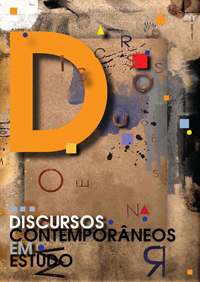Entrelugares: o professor universitário frente à s novas tecnologias de ensino
DOI:
https://doi.org/10.26512/discursos.v1i1.0/8275Keywords:
Between places. Discourse. Education Technologies. Identity.Abstract
This article presents reflections concerning the practical discoursive that happen in the constitution of the identity of the university professor, in front of the demand for the use of new technologies in superior education. Such quarrel is born of the examination of practical dialogues as part of the social ones, inside of fits of Fairclough (2001). With the transformations that occur in the world, it is natural that one adopts a new form to produce social life, that consequently generate also new conceptions of the involved citizens in the education process. These are changes that reflect in the individualization of the references, determining what Bhabha (1998) calls “between places.” The question of the identity is based on the Social Theory of the Speech of Fairclough (the 2001), who
defends the mobility of the identities, according to the social practical moment ”“ that is, social citizens are molded by the practical discursive, but they are also capable to remodel these practical.
The methodology, of qualitative character, was opted to the clipping election of interview carried
through with professors of the course of Letters and observation of discursive events in situation of
use of the new technologies of education for development of the activities that compose the
discipline.
References
AUGÉ, M. Não-lugares: introdução a uma antropologia da supermodernidade. (Tradução Maria Lucia Pereira). 4. ed.. Campinas: Papirus, 2004.
BAUMAN, Z. Modernidade Líquida. Tradução: Plinio Dentzien. Rio de Janeiro: Ed. J. Zahar, 2002.
BAUMAN, Z. Identidade : Entrevista a Benedetto Vecchi. tradução, Carlos Alberto Medeiros. ”“ Rio de Janeiro: Ed. J. Zahar, 2005.
BHABHA, H. K. O local da cultura. Belo Horizonte: Editora da UFMG, 1998, 2003.
CARVALHO, J.; SIMÕES, R. H. S. Identidade e profissionalização docente: um retrato delineado a partir dos periódicos nacionais. In: ANDRÉ, Marli Elisa (org.). Formação de professores no Brasil (1990-1998). Brasília: MEC/INEP/COMPED, p. 185-204 (Série Estado do Conhecimento, nº 6), 2002.
CHOULIARAKI, L.; FAIRCLOUGH, N. Discourse in late modernity. Rethinking critical discourse analysis. Edinburgh: Edinburgh University Press, 1999.
FAIRCLOUGH, N. Language and power. New York: Longman, 1989.
FAIRCLOUGH, N. Discurso e mudança social. Tradução de Izabel Magalhães. Brasília: Editora Universidade de Brasília, 2001 [1992].
FAIRCLOUGH, N. A Análise Crítica do Discurso e a mercantilização do discurso público: as universidades. In: MAGALHÃES, Célia. (Org.). Reflexões sobre a Análise Crítica do Discurso. Belo Horizonte: Faculdade de Letras, UFMG, 2001.
FAIRCLOUGH, N. Analyzing discourse: textual analysis for social research. London: Routledge, 2003a.
FAIRCLOUGH, N. El análisis crítica del discurso como método para la investigación en ciências sociales. In: WODAK, R.; MEYER, M. (Comp.). Métodos de Análisis Crítico del Discurso. Traducción de Tomáz F. Aúz y Beatriz Eguibar. Barcelona: Gedisa, 2003 b.
FREITAS, L. C. de. Mudanças e inovações na educação. 2. ed. São Paulo: Edicon, 2005.
HALL, S. A identidade cultural na pós-modernidade. Tradução: SILVA, T.; LOURO, G.L. 11. ed. Rio de Janeiro: DP&A. 2006.
SILVA, T. T. (org.). Identidade e diferença: a perspectiva dos estudos culturais. 2. ed. Petrópolis: Vozes, p. 103-133, 2002.
SILVA, T. T. (org. ) O sujeito da Educação: Estudos Foucautianos. Petrópolis, RJ: Vozes,1994.
THOMPSON, J. B. Ideologia e cultura moderna: teoria social crítica na era dos meios de comunicação de massa. Petrópolis, RJ: Vozes,
VAN DIJK, T. A. Discurso e poder; HOFFNAGEL, J; FALCONE, K (org.). Contexto. São Paulo, 2008.
ZABALA, A.. A prática educativa: como ensinar. trad. ROSA, E.F.F. Porto Alegre: ArtMed, 1998.
Downloads
Issue
Section
License
Autores que publicam nesta revista concordam com os seguintes termos:
a) Os(as) autores(as) mantêm os direitos autorais e concedem à revista o direito de primeira publicação, sendo o trabalho simultaneamente licenciado sob a Creative Commons Attribution License o que permite o compartilhamento do trabalho com reconhecimento da autoria do trabalho e publicação inicial nesta revista.
b) Os(as) autores(as) têm autorização para assumir contratos adicionais separadamente, para distribuição não-exclusiva da versão do trabalho publicada nesta revista (ex.: publicar em repositório institucional ou como capítulo de livro), com reconhecimento de autoria e publicação inicial nesta revista.
c) Autores têm permissão e são estimulados a publicar e distribuir seu trabalho on-line (ex.: em repositórios institucionais ou na sua página pessoal) após o processo editorial, já que isso pode gerar alterações produtivas, bem como aumentar o impacto e a citação do trabalho publicado (Veja O Efeito do Acesso Livre).
d) Os(as) autores(as) dos trabalhos aprovados autorizam a revista a, após a publicação, ceder seu conteúdo para reprodução em indexadores de conteúdo, bibliotecas virtuais e similares.
e) Os(as) autores(as) assumem que os textos submetidos à publicação são de sua criação original, responsabilizando-se inteiramente por seu conteúdo em caso de eventual impugnação por parte de terceiros.




